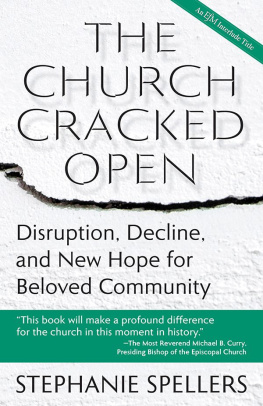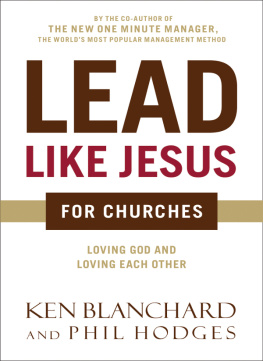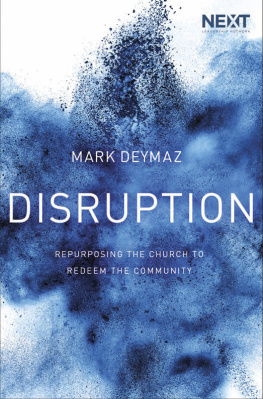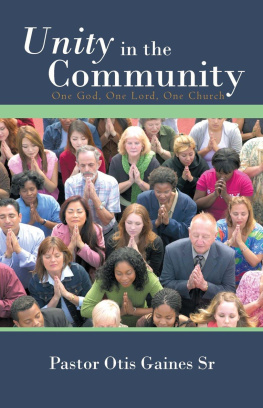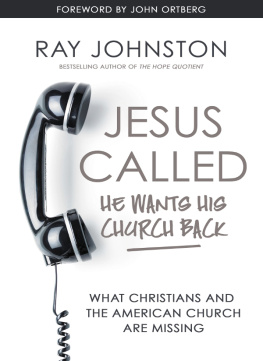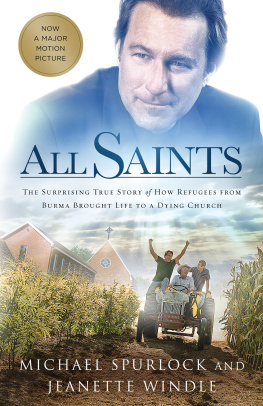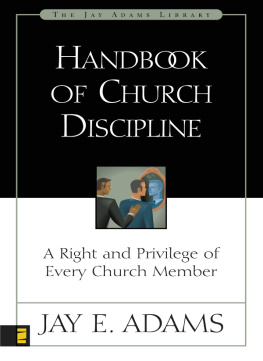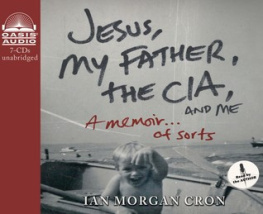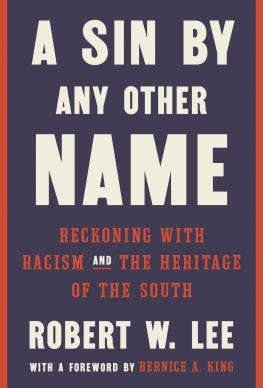Advance praise for The Church Cracked Open
If you are looking at the landscape of the church and wondering, Howd we get here? and whats next, I invite you to board Rev. Spellerss plane and take in the big picture with her. Take in the history, the theology, the pain, the beauty, and the hope that her view from thirty thousand feet offers. When she lands the plane, youll realizetheres simply no better guide out there.
Nadia Bolz-Weber, author
Stephanie Spellers draws our attention to the unraveling of white Christianity in the face of contextual diversity and Jesuss cross. She invites her readers to stop negotiating with the past and to realize that love is not maintaining and protecting community but the very cracking open at the heart of community. This book continues the theology of James Cone and Kelly Brown Douglas and signals a cruciform direction.
C. Andrew Doyle, IX Bishop, Episcopal Diocese of Texas
In a moment when structures and patterns in the churchs life are being deeply disrupted, this book is a loving, passionate invitation to repent, reimagine, and renew by rediscovering the churchs identity in the triune Gods healing of the world. Stephanie Spellers not only names hard truths but also and even more importantly offers hope and promise in Jesuss way of love.
Dwight Zscheile, PhD,
VP of Innovation and Associate Professor
of Congregational Mission and Leadership,
Luther Seminary, St. Paul, Minnesota
THE
CHURCH
CRACKED
OPEN
THE
CHURCH
CRACKED
OPEN
Disruption, Decline,
and New Hope for
Beloved Community
Stephanie Spellers

Copyright 2021 by Stephanie Spellers
All rights reserved. No part of this book may be reproduced, stored in a retrieval system, or transmitted in any form or by any means, electronic or mechanical, including photocopying, recording, or otherwise, without the written permission of the publisher.
Unless otherwise noted, the Scripture quotations are from New Revised Standard Version Bible, copyright 1989 National Council of the Churches of Christ in the United States of America. Used by permission. All rights reserved worldwide.
Scriptures quotations marked (KJV) are taken from the KING JAMES VERSION (KJV): KING JAMES VERSION, public domain.
Church Publishing
19 East 34th Street
New York, NY 10016
www.churchpublishing.org
Cover design by Jennifer Kopec, 2Pug Design
Typeset by PerfecType, Nashville, Tennessee
Library of Congress Cataloging-in-Publication Data
Names: Spellers, Stephanie, author.
Title: The church cracked open : disruption, decline, and new hope for beloved community / Stephanie Spellers.
Description: New York, NY : Church Publishing, [2021] | Summary: This book will make a profound difference for the church in this moment in history. - The Most Reverend Michael B. Curry. Sometimes it takes disruption and loss to break us open and call us home to God. Its not surprising that a global pandemic and once-in-a-generation reckoning with white supremacy--on top of decades of systemic decline--have spurred Christians everywhere to ask who we are, why God placed us here, and what difference that makes to the world. In this critical yet loving book, the author explores the American story and the Episcopal story in order to find out how communities steeped in racism, establishment, and privilege can at last fall in love with Jesus, walk humbly with the most vulnerable and embody beloved community in our own broken but beautiful way. The Church Cracked Open invites us to surrender privilege and redefine church, not just for the sake of others, but for our own salvation and liberation-- Provided by publisher.
Identifiers: LCCN 2020046843 (print) | LCCN 2020046844 (ebook) | ISBN 9781640654242 (paperback) | ISBN 9781640654259 (ebook)
Subjects: LCSH: Church. | Communities--Religious aspects--Christianity. | Episcopal Church. | Christian life. | Mary Magdalene, Saint.
Classification: LCC BV625 .S69 2021 (print) | LCC BV625 (ebook) | DDC 260--dc23
LC record available at https://lccn.loc.gov/2020046843
LC ebook record available at https://lccn.loc.gov/2020046844
I t was Saturday, August 1, 2020. I know because my text log tells me so. That afternoon I wrote to a friend:
God is breaking open this church and pouring us outpouring out privilege, pouring out empire, pouring out racism and human arrogancein order to remake us and use us to serve Gods dream for the whole world. We are the broken jar. It hurts and it sucks... and I think its a gift.
At that moment, we were six months into a global pandemic and economic collapse. It had been half a year since faith communities could fully and physically gather for prayer, worship, service, and fellowship. Many churches were flooded with need, just as donations began to dry up and our most reliable volunteers were locked away for fear of COVID-19. For six months people had been dying, sometimes more than a thousand a day in America, a disproportionate number of them Black, Latinx, and Indigenous people, whose lives the nation had long ago deemed expendable.
We were two months from the horror of watching Minnesota police officer Derek Chauvin pin his knee on George Floyds neck and squeeze the breath of life out of him. Two months into ongoing protest, truth-telling, reading groups, and deep grief for people of every race, but especially for my Black, Indigenous, Latinx, and Asian siblings. Two months shouting to God: How long, Lord? Will you forget us forever? Must we have sorrow in our hearts all the day? How long shall our enemy be exalted over us? (Psalm 13).
In the scope of human life, two months or even six months isnt that long. By the time you read these words, it may be a year or two (or ten) since these cataclysmic events. Other disasters might have eclipsed them entirely. I do not know. What I do know is that as this particular season wore on, something felt different. Others described the shift, too. Here is what we noticed:
First, loss and uncertainty were nothing new. America and civic institutions and churches that once rested comfortably at her center had actually suffered disruption, decline, and displacement for decades before 2020.
Second, this was a new phase, a steeper drop, a more profound disruption and displacement. For more than a generation, people had been speaking of the churches need to detach from our buildings, but now we were literally unable to congregate inside our sanctuaries in any significant numbers. Churches that once balked at a screen in the sanctuary were suddenly reconstructing church in cyberspace. People who had never before used words like White supremacy (more on this term and others later) were recognizing them as essential to understanding American identity and dominant American Christian culture.
Experts, scholars, and preachers agreed that this overall moment in American life was unlike anything most of us had previously faced. Leaders like Andy Crouch, Kurt Keilhacker, and Dave Blanchard explained that past experiences of disruption could be likened to a winter storm or maybe even a blizzard, but we were now in something like an extended winter season, maybe even an ice age. The usual institutional patterns and practices would not apply. It was time to act like a start-up.
Others compared the experience to wandering in the wilderness. Together with my wise colleague Dwight Zscheile, a professor of leadership and innovation at Luther Seminary, I hosted a summertime web series and podcast called Wilderness Time (find it at www.wildernesstime.org). For six weeks, we gathered practitioners, students, and thought leaders to explore life on the edge with God. Our trusty navigational devices would not work here, so wed better learn to trust God to provide direction and sustenance, as the Israelites learned the hard way during their forty-year wilderness sojourn. Like our forebears, we would have to embrace uncertainty and loss, humbly recenter our lives with the margins, and fundamentally redefine what is holy, what is worship, and what makes a follower of Jesus.

